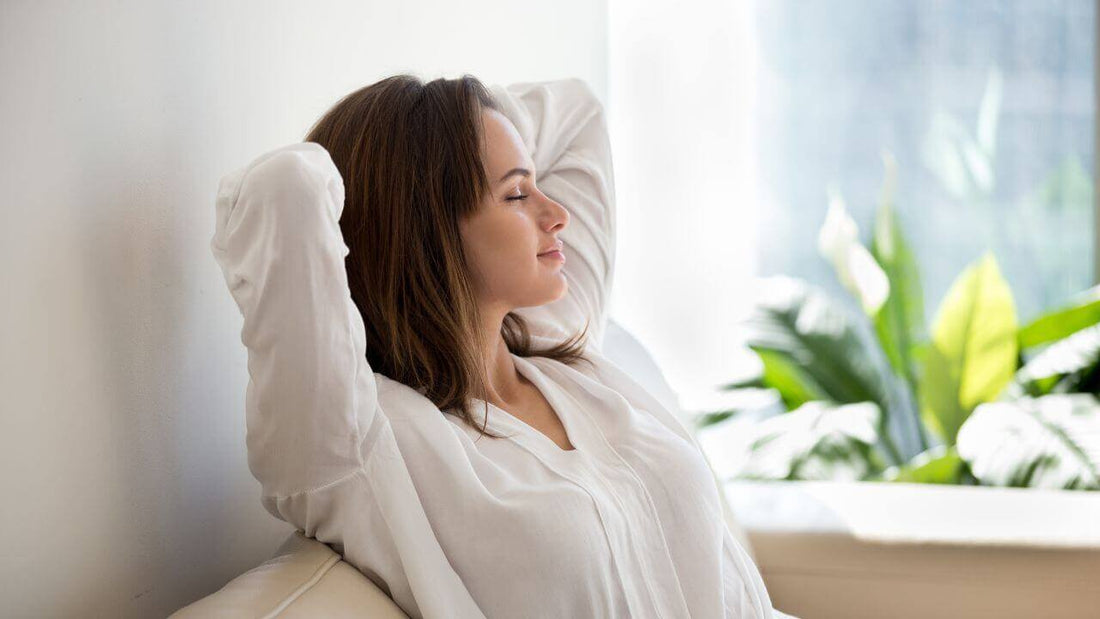
How Grounding Helps Stress and Anxiety
Denzel SueltoDoes Grounding Reduce Stress and Anxiety?
Yes, grounding can help reduce stress and anxiety. It’s a simple practice that involves reconnecting with the Earth’s natural electrical charge, and some research suggests that it helps regulate the nervous system and lower cortisol levels. People who ground themselves regularly say they feel calmer, more focused, and less overwhelmed by daily stressors.
Modern life can be exhausting. We wake up to alarms, rush through our days, stay glued to screens, and rarely take a moment to slow down. Stress builds up without us even realising it. Grounding offers a natural way to reset.
Whether it’s walking barefoot on grass or using a grounding mat at home, it’s about making that connection with something bigger than ourselves.
There’s still a lot to learn about grounding, but early yet progressing research is promising:
-
A study published in the Journal of Environmental and Public Health found that grounding helps shift the nervous system out of fight-or-flight mode into a more relaxed state. This means grounding might help reduce panic and tension.
-
Grounding can lower cortisol, the stress hormone. When cortisol stays too high for too long, it can make people feel constantly on edge, irritable, and exhausted.
-
It’s also found that grounding helps stabilise heart rate variability, which is a sign of better stress resilience. A stable heart rate suggests the body is in balance rather than stuck in a constant state of alertness.
-
Many people report an almost instant sense of calm when they walk barefoot on natural surfaces. Some say it feels like a mental reset, similar to meditation or deep breathing.
How Does Grounding Work to Relieve Stress?
Grounding interacts with the nervous system in a few key ways:
-
Lowers Cortisol Levels: High cortisol is directly linked to stress and anxiety. Grounding may help stabilise it, reducing feelings of restlessness, fatigue, and irritability. This can be helpful for people dealing with ongoing stress.
-
Encourages the Body to Relax: Grounding activates the parasympathetic nervous system, which is responsible for relaxation. When this system is in charge, blood pressure drops, heart rate slows, and the body moves into a recovery state.
-
Reduces Inflammation: Long-term stress can cause inflammation in the body, which is linked to anxiety, mood imbalances, and even physical pain. Grounding may help lower inflammation levels, which in turn could improve overall mental well-being.
-
Improves Sleep: Poor sleep makes everything worse, including stress and anxiety. Grounding has been linked to better sleep quality, which can greatly affect how the body copes with stress throughout the day.
-
Supports Emotional Balance: Some people describe grounding as a way to feel “reset.” It may help slow racing thoughts, improve focus, and create a sense of stability. For those who experience frequent mood swings or feel emotionally overwhelmed, grounding can be a simple way to regain control.
You can simply start by walking barefoot or going for a swim at the beach. If you don’t have immediate access to nature, grounding mats are your portable choice. For overnight benefits, use grounding sheets.
Can Grounding Help with Anxiety Disorders?
Grounding may help people with mild to moderate anxiety by calming the nervous system. It’s not a cure, but it can be a useful tool alongside therapy, lifestyle changes, or medication. Many people find that grounding helps them feel more present and reduces intrusive thoughts.
For those with generalised anxiety disorder, panic attacks, or PTSD, grounding can be a way to bring awareness back to the body. Simple techniques like pressing bare feet against the ground, touching textured objects, or focusing on physical sensations can help shift attention away from anxious thoughts.
People with social anxiety might also find grounding helpful before stressful situations. A few minutes of grounding before an event, a meeting, or a social gathering may help reduce nervous energy and promote a more relaxed state of mind.
Final Thoughts
Grounding is a simple but effective way to manage stress and anxiety. It doesn’t require expensive tools, special skills, or long practice sessions. Just stepping outside and making contact with the Earth—or using a grounding sheet at home—may be enough to help the body relax.
If stress and anxiety are part of daily life, grounding is worth trying as part of a larger self-care routine. It won’t replace professional support, but it might make things a little easier. And in today’s world, anything that helps lower stress is worth considering.
References
- Chevalier, G., Mori, K., Oschman, J. L., & Sokal, K. (2006). The effect of grounding the human body on cortisol levels during sleep and after awakening. Journal of Alternative and Complementary Medicine, 12(4), 395–407. https://doi.org/10.1089/acm.2006.12.395
- Chevalier, G., Sinatra, S. T., & Delany, R. M. (2011). Emotional stress, heart rate variability, grounding, and improved autonomic tone: Clinical applications. Journal of Alternative and Complementary Medicine, 17(4), 301–308. https://doi.org/10.1089/acm.2010.0337
- Chevalier, G., Sokal, K., & Sokal, P. (2015). The effects of grounding (earthing) on inflammation, the immune response, wound healing, and prevention of chronic inflammation and auto-immune diseases. Journal of Inflammation Research, 8, 83–96. https://doi.org/10.2147/JIR.S69656










